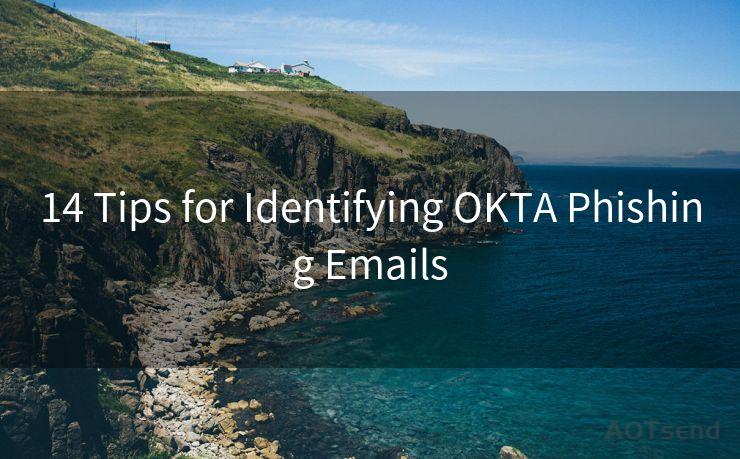14 Tips for Identifying OKTA Phishing Emails




In the digital age, phishing emails have become a common tactic used by cybercriminals to steal sensitive information. Among these, emails claiming to be from OKTA, a leading identity and access management provider, can be particularly convincing. To help you stay vigilant, here are 14 tips to identify OKTA phishing emails.
1. Check the Sender's Email Address
Always verify the sender's email address. Phishing emails often use addresses that look similar to the official OKTA email but with slight variations. Look for discrepancies like extra characters, misspellings, or unusual domains.
2. Examine the Email Subject
Phishing emails often use urgent or threatening language in their subjects to lure recipients into opening them. Be wary of subjects that demand immediate action or contain alarming messages.
3. Analyze the Email Body
Read the email content carefully. Phishing emails may contain grammatical errors, typos, or awkward phrasing. They might also use generic greetings like "Dear User" instead of your actual name.
4. Beware of Links
Hover over any links in the email without clicking on them. Check the URL that appears in the bottom left corner of your browser. If it looks suspicious or doesn't match OKTA's official website, it's likely a phishing attempt.
5. Avoid Downloading Attachments
Be cautious about downloading attachments from unknown or suspicious emails. These attachments can contain malware that can infect your system.

6. Verify the Logo and Branding
Phishing emails may use altered or low-quality versions of the OKTA logo. Compare the email's logo and branding with the official OKTA website to spot any inconsistencies.
7. Look for HTTPS and the Lock Symbol
If the email contains a link, ensure it starts with "https://" and has a lock symbol in the browser's address bar, indicating a secure connection.
8. Contact OKTA Directly
If you're unsure about an email's authenticity, contact OKTA's customer support directly through their official website or social media channels.
9. Don't Share Personal Information
Never provide personal information, such as passwords, credit card details, or social security numbers, in response to an email. OKTA will never ask for such information via email.
10. Check for Spelling and Formatting Errors
Phishing emails often contain spelling and formatting mistakes. These errors are red flags indicating that the email may not be from a professional or legitimate source.
11. Be Wary of Urgency
Emails that demand immediate action, such as threatening to suspend your account if you don't respond, are often phishing attempts. OKTA will not pressure you to take immediate action via email.
🔔🔔🔔
【AOTsend Email API】:AOTsend is a Managed Email Service for sending transactional emails. Support Email Types: reminders, authentication, confirmations, notifications, verification codes, invoices, password resets, account activations, billing statements, two-factor authentication (2FA), and one-time passwords (OTP) emails, etc. $0.28 per 1000 Emails. 99% Delivery, 98% Inbox Rate.
You might be interested in:
Why did we start the AOTsend project, Brand Story?
What is a Managed Email API, How it Works?
Best 25+ Email Marketing Platforms (Authority,Keywords&Traffic Comparison)
Best 24+ Email Marketing Service (Price, Pros&Cons Comparison)
Email APIs vs SMTP: How they Works, Any Difference?
12. Use Anti-Phishing Tools
Consider using anti-phishing tools and browser extensions that can help detect and block phishing attempts.
13. Stay Updated on OKTA Communications
Keep yourself informed about OKTA's official communications and updates. This way, you'll be more aware of their email patterns and can easily spot imposters.
14. Report Phishing Emails
If you receive a phishing email claiming to be from OKTA, report it to their security team. This helps OKTA improve their security measures and protect other users.
By following these 14 tips, you can protect yourself from OKTA phishing emails and ensure your personal information remains secure. Remember, vigilance is key in the fight against cybercrime.




Scan the QR code to access on your mobile device.
Copyright notice: This article is published by AotSend. Reproduction requires attribution.
Article Link:https://www.mailwot.com/p1827.html



